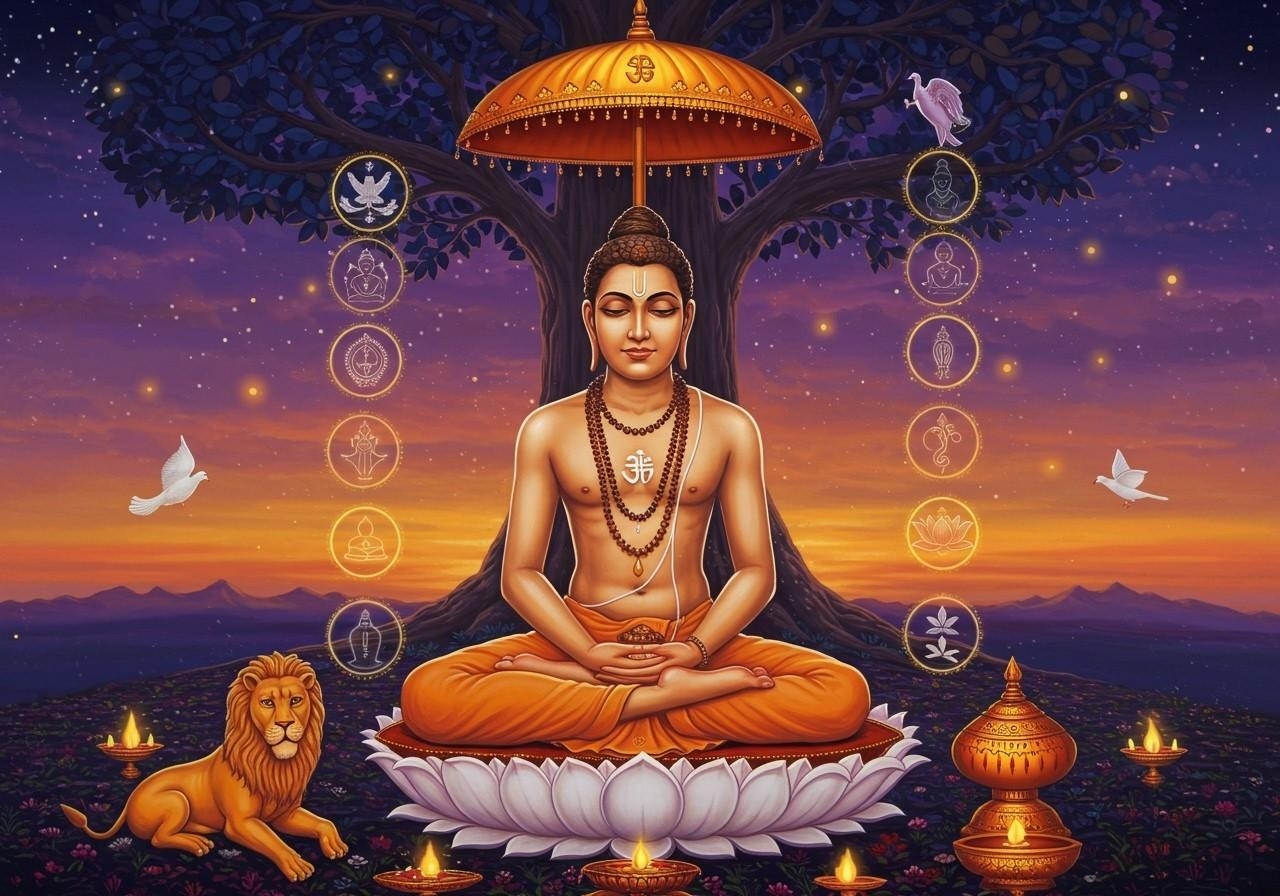Finding peace in Mahavira’s simple wisdom
| Date :10-Apr-2025 |

By Jinendra Parakh :
Once, a wealthy merchant sat beside a Jain monk and confessed, “I have everything, yet I feel empty inside.” The monk gently replied, “True happiness comes not from holding on, but from letting go.” This short tale, often shared by Osho, reflects the core of Lord Mahavira’s timeless wisdom. Over 2,600 years ago, he taught us to let go of anger, greed, ego, and attachment to find inner peace.
In today’s fast-paced and stressful world, Mahavira’s teachings offer more than just spiritual lessons; they give us practical tools for living. Jainism’s principles like Ahimsa (non-violence), Satya(truth), Asteya (non-stealing), Brahmacharya (self-control), and Aparigraha (non-attachment to worldly things) are not just religious ideals, they are simple habits that can lead to a happier life.
Simple Teachings for a Complicated World
The merchant’s emptiness is something that isn’t so different from what many feel now. The World Health Organization says, over 300 million people around the world struggle with depression, often silently. Mahavira's teachings on calming the mind and controlling desires can help lighten this invisible burden.
One of his most powerful ideas is Anekantavada (seeing all sides), that truth has many sides. In a world full of arguments and divisions, this concept teaches us to listen, respect other views, and live with more understanding and less judgment. These are not heavy or complex ideas. They’re gentle reminders that a
peaceful life begins with small, mindful choices.
Losing Touch with
What Matters
But somewhere along the way, we seem to have drifted from these values. Today’s world chases more, more money, more fame, more stuff. By 2030, the global consumer market is expected to hit $50 trillion, which shows how deeply we have embraced materialism, ignoring the principle of Aparigraha. Social media often spreads half-truths, pushing Satya aside.
Osho and Mahavira’s
Shared Lesson
Osho’s story about the merchant isn’t just spiritual talk; it’s a mirror to our inner world, and connects to Mahavira’s bigger point. The monk’s advice to let go echoes Mahavira’s call to conquer the enemies within: anger, greed, and ego. Think back to 2019, a year marked by global tensions and environmental neglect. What if we had embraced Jainism’s principles of Ahimsa and Aparigraha more deeply?
According to the WHO, over 1.6 million people die every year due to violence, and stopping the rush for more. Mahavira’s path doesn’t just preach peace or what’s wrong; it gives us a practical way to reduce suffering by cutting violence and living better, together.
Are we truly living Mahavira’s Truth?
Today, some Jain practices seem caught in rituals, grand celebrations, and showy displays. Lavish ceremonies, overtly ornate temples, and the pursuit of status often overshadow the quiet depth of Mahavira’s over 2,600-year-old message, his simple yet profound call to embrace Ahimsa (non-violence), Satya (truth), and Aparigraha (non-attachment). Mahavira’s voice, once a bold rejection of greed and ego, fades as some pursue power and money, diluting his values in the glare of wealth and status.
His teachings were never about external appearances. They were about looking within, rejecting ego, choosing compassion, and living honestly. Being ambitious or chasing success isn’t wrong, but we must ask: are we living Mahavira’s truth, or just celebrating his name?
It’s time to pause and reflect. Mahavira didn’t ask for devotion; he asked for transformation. Are we walking his path, or just walking lost around the very attachments he asked us to release? Introspection is the need of the hour.
A Gentle Light for the
Road Ahead
Mahavir Jayanti 2025 is not just a festive celebration, it's a wake-up call. It invites us to return to simplicity, to kindness, and to peace. From the merchant’s story to our everyday struggles, Jainism offers us a way forward: calm instead of chaos,
togetherness instead of tussle, simplicity instead of clutter, and love instead of hate.
This year, let’s not just
remember Mahavira, let’s live his wisdom. His teachings are not old, they are timeless. Not distant; they are deeply personal. Let his light guide us, not just for a day, but
for every step toward a better,
kinder world.
n
